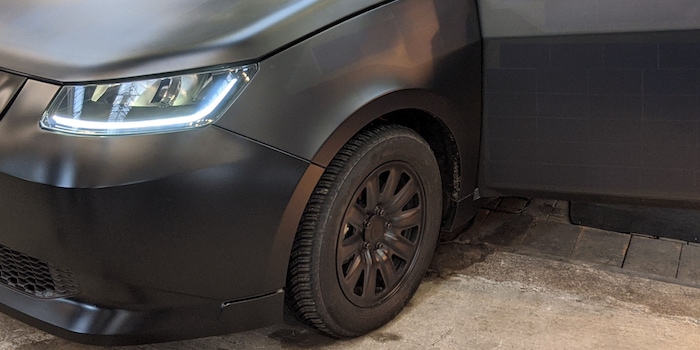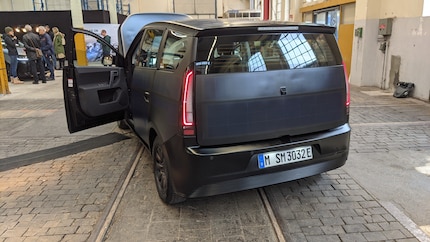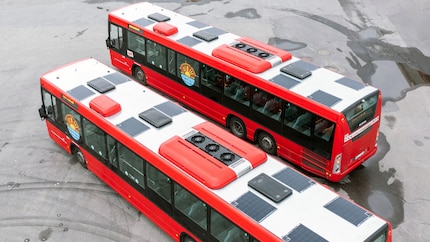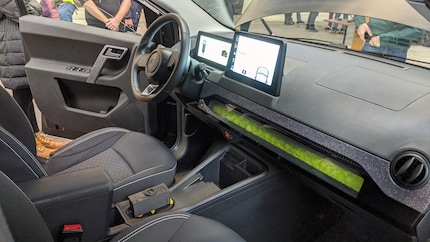
Sono Motors becomes SonoSolar: commercial vehicles are now to be fuelled by the sun
Sono Motors had set out to build a car with solar cells in the body. Following its insolvency, the company is now pursuing other goals as SonoSolar. It is starting out as a supplier for solar integration.
I was standing in front of the Sion in Zurich a good two years ago. A ready-to-drive car from Sono Motors, under whose matt black bodywork solar cells only shone through on closer inspection. However, what already shone through at the roadshow to find investors at the time was that things were going to be tight financially. Very tight.
«The project is too far along to fail now», the company wrote to all supporters in January 2023. But even the #savesion campaign didn't help - the dream of a self-built, self-charging vehicle ended in insolvency. The less visionary, but more economical plan for the time afterwards Take the experience with them and concentrate fully on the patented solar technology.

This week, the company announced that it would be operating under the SonoSolar brand with immediate effect. Head of Commercial Georg Zurmühl is quoted as saying that the company has not been a car manufacturer for some time: «Instead, we are the leading supplier of solar solutions for the automotive industry.» The mission remains «Solar on every vehicle». However, the change is complete and at first glance appears less spectacular. In commercial vehicles, but also with suppliers for private users.
Solar on every vehicle (except the Sion)
On the one hand, SonoSolar is now developing customised products for vehicle manufacturers. At MAN, coaches with solar integration can be ordered as accessories, and electric, hybrid and diesel buses as well as refrigerated vans throughout Europe have also been equipped with solar systems. At the beginning of the year, it became the first company in Germany to receive a general operating licence for vehicle-integrated photovoltaics and to offer a retrofit solution with the «Solar Bus Kit».

Source: SonoSolar
On the other hand, there are also modules for DIY fans who want to equip their camper or balcony with solar cells. To celebrate the name change, there is currently a limited offer. From plug-and-play kits to specially developed high-end solutions, the new product portfolio includes everything that at least somewhat supports the original vision of solar mobility - even if the main drive is often still a combustion engine.
What solar can do for commercial vehicles
A few square metres of solar panels on a bus roof are not nothing if the energy is fed into the on-board power supply. They can be used to support heating or cooling, for example. This should save up to 1500 litres of diesel and up to four tonnes of CO₂ per bus per year. SonoSolar speaks of up to seven per cent less fuel consumption, emphasises the lower CO₂ footprint and points to the higher reliability of the supporting solar systems.

Of the original strategy of marketing a vehicle, sharing app and solar technology, only the latter proved to be profitable. What a shame for a great idea. Our Microlino test has also shown that alternative e-concepts from small manufacturers do not have an easy time on the market.
Simple writer and dad of two who likes to be on the move, wading through everyday family life. Juggling several balls, I'll occasionally drop one. It could be a ball, or a remark. Or both.
From the latest iPhone to the return of 80s fashion. The editorial team will help you make sense of it all.
Show all